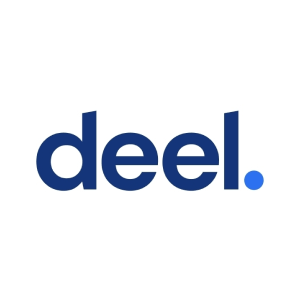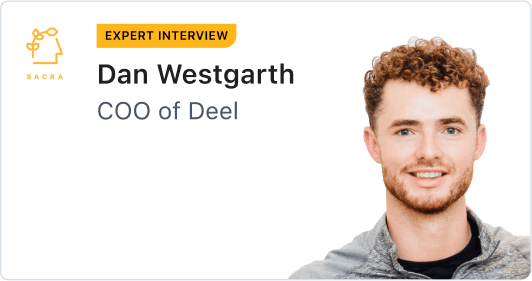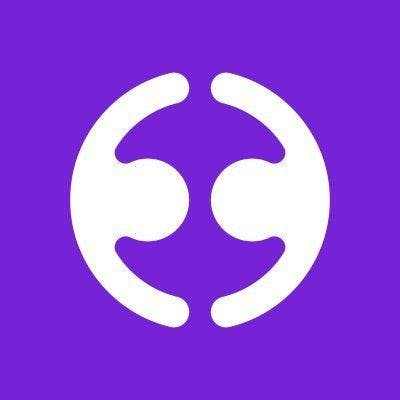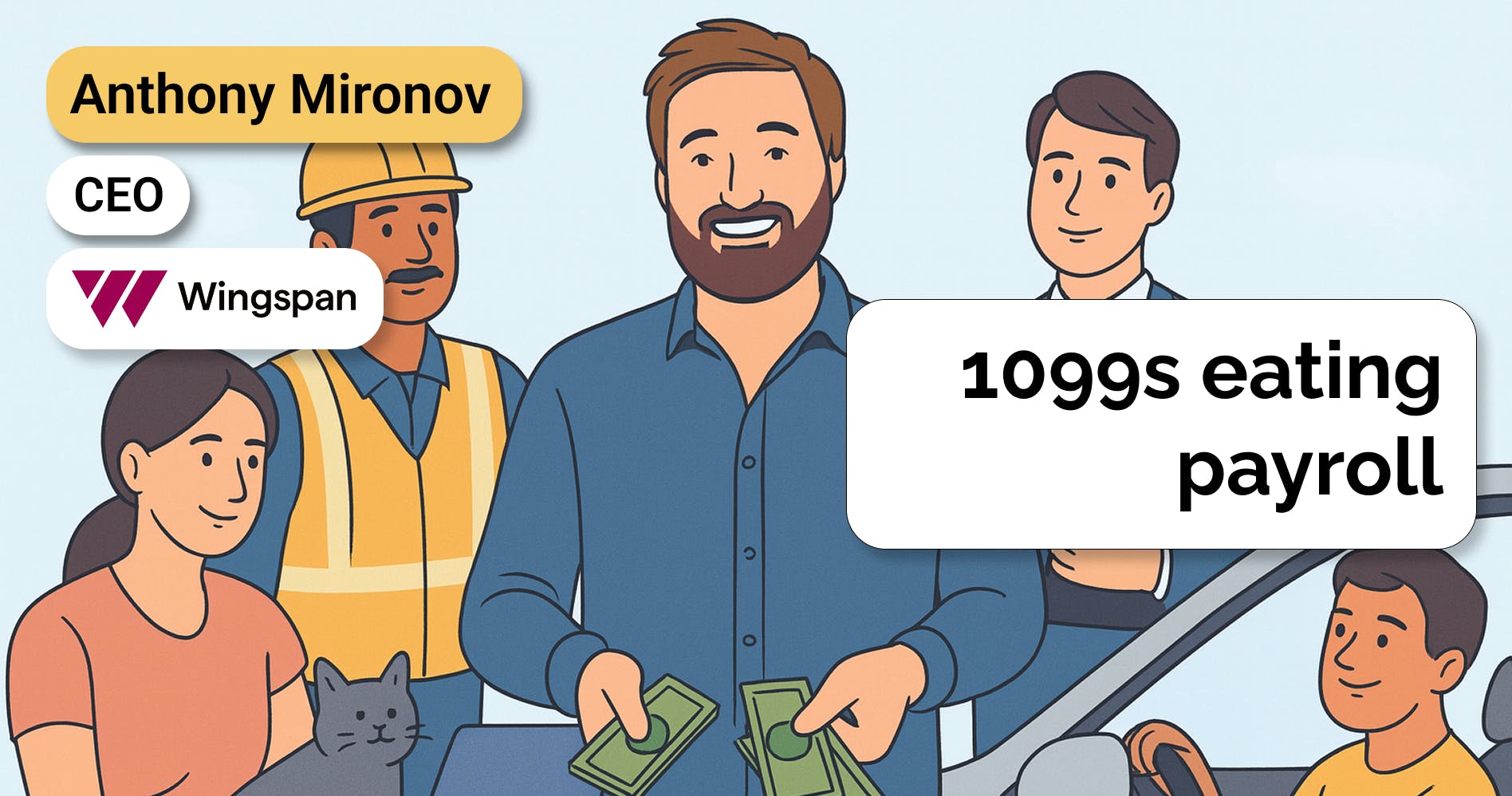Alex Bouaziz, CEO of Deel, on Deel's bundle-unbundle strategy
 Jan-Erik Asplund
Jan-Erik Asplund

Background
We last covered Deel in early September at $1.15B/year growing 70% YoY. Since, in mid-October it announced its $300M Series E valuing it at $17.3B, led by Ribbit Capital, A16Z & Coatue.
On Monday, Deel announced that it had appointed ex-Credit Karma CEO & CFO Joe Kauffman as CFO, moving co-founder & CEO Alex Bouaziz’s father Philippe from CFO to CSO as it prepares to go public.
To learn more, we spoke with Alex about the Series E, Deel’s push into the enterprise, and its timeline for IPO.
Key points from our conversation via Sacra AI:
- Out of the crowded market for global employment platforms circa 2020 (Remote, Oyster, Papaya Global), Deel emerged the winner through its rapid product expansion from international contractor payments (2019) to EOR (2020) to global payroll (2022), that simultaneously reduced churn & graduation off the platform, drove expansion in seats & revenue per seat and massively increased the scope of Deel’s TAM. “When we were starting up, the contractor product was the very first one. Our customers would eventually need an EOR provider, so they would churn out of Deel. And then eventually, when they were using our EOR product, they would need a payroll provider, so they would churn out of Deel. . . today, we're a full HR and payroll platform across every single market.”
- Deel’s global payroll push required investment in physical infrastructure—local entities & licenses, in-country legal/HR staff, and jurisdiction-specific compliance engines—taking on that operational & compliance responsibility for customers and creating a moat against competition that upstarts & rivals cannot replicate through code alone. "Compliance and infrastructure—licensing, for example, in different countries, the EOR model where we own licenses to be operating and stuff like that—in a world where you can build up a SaaS in Lovable in a couple minutes is probably the biggest moat a company can have. Whether it's their own infrastructure, licensing infrastructure, financial licensing infrastructure, that's the biggest moat that you can have as a business, and a lot of companies are going to start realizing that and double down on this for sure.
- Its fastest growing customer segment, Deel’s approach to the enterprise (recent wins with FedEx, Databricks, Verizon) looks to bypass the decade-long Workday displacement cycle with its bundle-unbundle strategy of selling any single product for any number of seats and expanding from there—with a 2026-7 IPO eyed to strengthen its positioning as enterprise-grade. "It's very hard for companies at the SMB level to be able to win [enterprise] businesses. And enterprise is actually our fastest-growing segment. I'm not even going to try to sell to an enterprise today a full-stack HR solution because it's going to take me years to get there. . . But on the payroll side, it's so fragmented, such a poor experience. On the EOR side, same thing, that we can really get into accounts that are at the enterprise level much quicker.”
Questions
- Congratulations on the Series E. Can you talk about why you raised, the timing, who's leading, who's involved, and the milestone moment?
- You guys are profitable. How do you think about fundraising, especially leading into a potential 2026, 2027 IPO?
- When Deel was founded, it was highly competitive with Remote, Papaya Pay, Panther, Oyster, Ontop, and many others. It looked like it wasn’t a winner-take-all market and there would be many winners potentially. Why did Deel win in this highly competitive market?
- In this 2020 era, there were all these trends driving international hiring—remote work and COVID, white-collar labor unrest, Black Lives Matter, the high cost of health care in the United States. Post-COVID, a lot of the companies that were very COVID-indexed decelerated, but Deel has continued to grow. What adjustments did you make to continue to grow post-COVID?
- Can you talk about Deel's vision for AI? Also, AI is enabling companies to build with smaller teams, and fundamentally Deel monetizes per employee. Do you see AI as a headwind or tailwind and why?
- Can you talk about compliance as a headwind versus compliance as a tailwind? Customers buy you because you take the problem of compliance in local jurisdictions off their hands, but at the same time, what risk are you taking on? How do you think about your exposure to different things, especially these high-degree-of-difficulty problems like EOR where there are a lot of ways to get tripped up?
- You said contractor payroll is a $130 million per year business, EOR is $300 million per year, payroll is $150 million per year. That comes to around $580 million per year. How is the remaining $620 million per year in revenue distributed among the other product lines? Which are the fastest growing? How do you anticipate this revenue mix looks in three years? Five years?
- There are two different trajectories. One is global payroll to domestic payroll. The other is domestic to global. Do you think this emphasis on service is the primary reason why you guys will win and the benefit of taking that trajectory that you've had?
- Deel's headcount is more than 7,000 employees. Rippling's at 3,600, Ramp maybe 1,500. Can you talk about Deel as a more headcount-heavy business, and how outside observers should think about employee counts when it comes to these types of businesses?
- What kinds of companies are layering on Deel HR, Deel IT, and Deel Services? Are you seeing U.S.-based companies using these to manage their global workforce while using their domestic HR/IT providers for their domestic workforce? Is there a thesis for why companies would do all of their HR through Deel?
- We talked about a timeline where Deel goes public in 2026 or 2027. What needs to be true about the business between now and then to have a generational IPO event? And what are you looking at to say, "Okay, we're ready to have a massive IPO?" Is it unit economics, product expansion, this vision of everything on Deel coming to fruition—how do you think about it?
Interview
Congratulations on the Series E. Can you talk about why you raised, the timing, who's leading, who's involved, and the milestone moment?
Very excited about this. It's actually a pretty big milestone for us because, depending on what you consider the 2023 $50 million round—which is a little lower than the usual fundraising round—the last time we raised primary capital was in 2021 with the $425 million round. So it's the first time we've raised significant primary capital in quite a while, and we're very excited to have the amazing team at Ribbit Capital, with Andreessen Horowitz and Coatue co-leading this round together. We have a bunch of other amazing investors following, like General Catalyst and Green Bay Ventures.
What's super cool is I love the funds we're working with. Ribbit is a fund that—I don't know if you've ever talked to Micky [Malka] or Nick [Shalek]—I love them. I've been wanting to work with them for a very long time. So having them lead a growth round, which is something they don't usually do, is a strong testament to their belief in the company and where we are. And having our amazing investors like Coatue doubling down on the company, or Andreessen Horowitz, is a strong statement as well. So yeah, I'm very excited about this round.
You guys are profitable. How do you think about fundraising, especially leading into a potential 2026, 2027 IPO?
We've been profitable for three years, so we've been generating cash for quite a bit. The way I look at it is I've been lucky enough in my life where I've always focused heavily on sustainable growth and profitability. So although we're growing really fast still, since our seed round, we came into our Series A having raised a $14 million seed round and having spent only $375k at the time.
We've always been very anchored on how to grow sustainably and profitably. And what that triggered is we've always been in a situation where we considered that the round we had closed could technically be our last round ever. So we've always been quite thoughtful about how we do things. And what happens with that is I'm usually never in the market, so I'm never fundraising. Every single one of our rounds, due to that, actually happened through investors preempting their own, which is always flattering, of course.
In this case, it's exactly what happened. Coatue and Ribbit did a bunch of due diligence for a while because they actually wanted to buy secondaries in the business. Coatue has been buying secondaries for all this time, actually. And the team at Ribbit was planning on doing the same, and it just came together where they were like, "Hey, what about us just doing a primary instead?" And yeah, we're very excited about it.
From a pure use of funds perspective, we've been pretty active in the M&A market. We've done 13 acquisitions so far, and this is a trend we're going to keep going on. So resetting the valuation of the company is a great idea when you're about to bring on more businesses and go out to market.
Second, we've been investing really heavily in our infrastructure. We're doing something that really hasn't been done before, which is building all payroll engines in every market and actually doing gross-to-net calculations and covering every single edge case of payroll in every single country across every single industry. That is a pretty big endeavor, and we've been able to, just in the last year, increase the amount of provisions that we have by almost 10x. Doing this over the next few years is going to be a significant undertaking, but it's just going to require so much investment that it's never a bad idea to have additional capital. And like every single company, we want to double down on AI, and some of those AI talents cost quite a bit of money. So capital is not a bad idea.
When Deel was founded, it was highly competitive with Remote, Papaya Pay, Panther, Oyster, Ontop, and many others. It looked like it wasn’t a winner-take-all market and there would be many winners potentially. Why did Deel win in this highly competitive market?
We are very blessed to be in a very strong market where there was a lot of money funneled in. That just raised the bar for the quality and the talent that our customers expected.
When we started working on Deel, as you know as a customer, we followed our users. We started with the contractor product, moved to the employer of record product, eventually moved to the global payroll product. And today, we're a full HR and payroll platform across every single market. We're really the only company from our space to have evolved with our customers.
The way we've evolved with our customers has been very critical to our growth for obvious reasons. For example, when we were starting up, the contractor product was the very first one. Our customers would eventually need an EOR provider, so they would churn out of Deel. And then eventually, when they were using our EOR product, they would need a payroll provider, so they would churn out of Deel. Following the growth of our customers and following the product needs that they had has been one of the key parts of our growth.
Beyond this, there's just a few things from a pure execution perspective. We've always been much more customer-centric in terms of building fast for them and being very present in the relationship and top-down just doing our best for our customers. And again, it's not to say that other companies haven't, but we had a very strong emphasis on that. The combination of all of this together, plus a good product, good timing, a lot of luck, and great executives in the business, is what helped us set ourselves apart.
Now, I still think Oyster, for example, is a great business, and they're going to keep doing great. I don't really know what's in store for them, but I know that a lot of customers are very happy using their products as well.
In this 2020 era, there were all these trends driving international hiring—remote work and COVID, white-collar labor unrest, Black Lives Matter, the high cost of health care in the United States. Post-COVID, a lot of the companies that were very COVID-indexed decelerated, but Deel has continued to grow. What adjustments did you make to continue to grow post-COVID?
First of all, I don't mind demystifying that Deel's growth was very tied to COVID. A lot of the marketing we had and a lot of the interest we had was tied to COVID. But if you look at 2020, we were a tiny company, almost no revenue. So it's not like that much revenue was really tied to this. In 2020, hiring globally was already a thing. Companies already had offices abroad. Companies were already engaging with their workers. We made it easier for companies to be able to have global teams, but our initial customer base were people that already had global teammates. We just made it easier for them to be able to run payroll and manage all of them in one place.
The second part is what I believe COVID really did for us—and in many ways, it did help us from a marketing standpoint at the time—is it made people realize that if everybody's working remote, giving a great experience to all of your employees, not just the ones in your HQ, mattered a lot. Suddenly everybody is at home. The person that's at home in Nigeria, in Peru, or in the U.S. is just exactly the same as your usual employees. When you have everybody in one place, in one headquarters, and just a couple employees here and there in a few other places, it's easier to favor the people that are all in the same place. But when everybody is in exactly the same situation, then you tend to want to give the same experience or at least a better experience to everyone. So that was actually one of the very strong tailwinds we got from this, which is heads of HR realized, "Hey, we're actually giving a subpar experience to some of those teammates. Let's actually fix that."
Beyond this, we did grow into becoming the people platform for global teams. When people look at us today, even if there are some leftovers of, "Oh yeah, you guys are focused on remote workers," it's like every single company—you grow as a brand, so people need to eventually understand who you become as a business, and it takes time to anchor that in their mind when one thing worked out really well. We're starting to really be seen as the global HR and payroll platform for most companies, whether they're small businesses or enterprise. And that's the biggest tailwind for us—that now it doesn't really matter, remote or not remote. We'll just run payroll everywhere you have people. We'll just help you hire wherever you need, wherever they are.
That is the very interesting and fun transition that we've been going through, which separates us from being a one-time or one or two product wonder that gets to great revenues into a potential generational business.
Can you talk about Deel's vision for AI? Also, AI is enabling companies to build with smaller teams, and fundamentally Deel monetizes per employee. Do you see AI as a headwind or tailwind and why?
We've been working on AI products since OpenAI's APIs were available. As soon as we could build great things, we went for it straight away.
There's a couple of things here that we did early that were very helpful for us. First of all, in 2022, we made a pretty big decision, which was to build our own database infrastructure, our own internal wiki. We love products like Notion and others, but if we're going to be the encyclopedia and have all of that knowledge in one place—given we have local people across payroll, employment, benefits, legal, etc., in every single market—we need to own the data structure itself so that we can actually control the quality of the data and be able to do reinforcement learning and all that. So that was one of the big things we did very early on, which really shaped us as a product. Today, we have 68,000+ edits and changes inside our own wiki weekly because compliance changes all the time in every single one of those countries. Being able to layer great models like OpenAI and others on top of this just gives a steep increase in customer experience and how things can work.
Beyond that, there's so many things I'm excited about when it comes to bringing AI onto the platform. I don't know if you saw, we recently launched our AI Workforce Hub. Basically, what that stands for is, okay, if you go with the mindset that you're going to have agents that are going to be working for you—they're going to automate a lot of the tasks that are maybe a bit more mundane—there's still a world where people will need to measure the performance of those agents. What better platform than the platform where you actually have all of your employees in one place to be able to assign different agents to them, the performance and monitoring of them, and even the performance and rating of those agents?
One thing I was laughing about when we did our launch was I was telling some of our customers that were using the product and testing—one customer was actually bragging to me that she had so many agents that were built in-house and stuff like that. And my question to her is, "Have you ever fired an agent?" Keeping a tidy house into what you're actually using from that standpoint is really great. So we launched that with a few agents. We launched a bring-your-own-agents product, and we think this is going to be really great.
Beyond that, as a business, as you can understand, we're a very operational business. We have people in every single country, every single jurisdiction: HR, legal, payroll, etc. There's just so much you can automate through this. The way I think about this is, if I take my team today, can I give them superpowers to be able to automate a lot of the work they're doing? If you take this and you combine it with payroll engines in every single country, we can really blow up from a gross margin perspective, but more importantly, from a customer experience perspective.
Regarding your last question when it comes to headcount, not really. There will be just a lot more companies with a lot fewer people, which is fine by me. Because at the end of the day, every single significant industrial revolution led to different jobs being created. At the moment, what's happening is we have amazing marketplaces that are doing a lot of AI labeling. A lot of those AI labelers are actually being hired through Deel, and our embedded product and our white-label product are doing amazing in that market. So every cycle has different moments. It used to be crypto. Crypto is coming back, but we serve most crypto companies. Now it's looking like AI. And if you look at the number of AI businesses that we serve today, whether it's the Mistrals of the world or the Anthropics of the world, we're very proud of having them as customers and think there are going to be more businesses, maybe fewer people, but more of them.
Can you talk about compliance as a headwind versus compliance as a tailwind? Customers buy you because you take the problem of compliance in local jurisdictions off their hands, but at the same time, what risk are you taking on? How do you think about your exposure to different things, especially these high-degree-of-difficulty problems like EOR where there are a lot of ways to get tripped up?
Compliance and infrastructure—licensing, for example, in different countries, the EOR model where we own licenses to be operating and stuff like that—in a world where you can build up a SaaS in Lovable in a couple minutes is probably the biggest moat a company can have. Whether it's their own infrastructure, licensing infrastructure, financial licensing infrastructure, that's the biggest moat that you can have as a business, and a lot of companies are going to start realizing that and double down on this for sure.
When it comes to the business itself—today, we have 19 different products including our HR product, our Engage products like performance reviews and learning, our Deel IT products like global equipment and managing IT, and our payroll products. Across all of those, generally, we've always had compliance at heart.
It might sound silly, but what courses do you put in front of a German employee versus a French employee versus an American employee in California, for example? So when it comes to this, it's what really makes us unique in a way. Every single product we built, we have it with compliance in mind and compliance first. The fact that today we have more than 2,000+ people internally who are experts on payroll, legal, etc., really gives us a significant edge that most companies don't really have.
The one product that you're looking at where you're actually getting at is our EOR product, where we're actually employing the person on your behalf when you don't have the infrastructure. And to be honest, we run a pretty tight ship there in terms of credit control, in terms of losses, in terms of taking a deposit and generally managing exits and helping companies and employees exit the correct way and doing it compliantly.
There's a lot on the line because, technically, we are in that specific case—while it's not in the other cases—the employer. But it's also our bread and butter. So we know how to do this, and we've been able to just get better and better over the years.
You said contractor payroll is a $130 million per year business, EOR is $300 million per year, payroll is $150 million per year. That comes to around $580 million per year. How is the remaining $620 million per year in revenue distributed among the other product lines? Which are the fastest growing? How do you anticipate this revenue mix looks in three years? Five years?
The way we break down our products and our revenue, you obviously have fintech, which is a significant part of our business—25-30% of our business as well. We move more than $2 billion a month across every single currency you can think of.
But more interestingly, we can see that the different products in our ecosystem have been really getting the appetite of our customers. Deel IT, for example, represents now almost 7% of our business. And it's grown double since the acquisition of Hofy and rebuilding the product in-house. We've gone from managing global equipment for our customers to all of the different products that you could be expecting from IT.
Same thing for immigration. We started with acquiring a company that got my own O-1 visa at the time. Now, we help thousands of people get not only the O-1 and other US visas, but visas in about 100 countries, all in one solution.
It's amazing to see that if you build a great relationship with your customers in the way we do—which is actually a very interesting way to do go-to-market where, differently than every single HR business or payroll business, we don't actually try to force you into consolidation. We build an open API ecosystem where every company can build on top.
Our take is we don't want to force our product down your throat, which has been the standard go-to-market for a lot of companies in this business. We actually want to have what I like to call a very strong bundled-unbundled offering where you can come and just use us for U.S. payroll or for one person in that country or for your contractors or for our learning product. And then, technically, we'll be able to sync into whatever ecosystem you have, whether you're an HR leader or finance leader, so that you can actually enjoy the benefits of just one great product.
And look, over time, it's our job to build a relationship in a way where you're like, "Hey, you know what? I might actually give a run at that product." And we see it in the numbers. Our HR suite product, Deel Engage, which is a full performance learning suite, has grown more than 540% in the last year. Same thing—I was talking about the IT product, but same thing with U.S. expansion. It's something people don't realize, but our PEO business is giving the market a run for its money. It's really good. It's getting better by the day. And we're seeing so many customers looking at this and saying, "Hey, look, I know what Deel is from a service perspective."
Because remember, payroll is so commoditized that a lot of companies take their customers for granted. But because global payroll is so complicated, we always over-index on great service and being very close to our customers. Of course, we don't get it perfect all the time, but it's actually very hard. We actually overinvest in that because the global payroll side is so hard. When we come into the U.S. side and give the same service that we've always been giving on the global side, our customers look at it and say, "Wow, that's the type of service I actually want and I deserve across all of my stack," while, until we went into the U.S. market and brought that mindset, they were seen as a commodity and weren't really treated the way they actually should have been.
There are two different trajectories. One is global payroll to domestic payroll. The other is domestic to global. Do you think this emphasis on service is the primary reason why you guys will win and the benefit of taking that trajectory that you've had?
We're pretty good at product. If you look at, for example, Shuo and myself, we're both engineers, my cofounder and I. I don't have a chief product officer. I'm the chief product officer of the business. So we're pretty good at building great products.
Great products take time. And if you look at our EOR product or our contractor product, when you guys started using it versus where it is today—now it's on autopilot, and things are great, and they're working, and you rarely would have any issues. Four years ago, maybe that would have been a different story. So the only way to build an amazing product, get it in the hands of people, and learn really quickly while not destroying your reputation is to have amazing service and be super close to your customers.
When people see you building—and maybe now we're less forgiven for mistakes because people see us as this big company. So maybe that mindset could and should change. But at least at the time, what I've always seen is people look at us, and when they think about the service we give, they're like, "Hey, you know what? You guys are growing super fast. You're doing amazing things. If I had run into this with any other person or any other company, it would have taken weeks to fix. But because of the way you operate, it's moving super fast." So even if there are small quirks here and there at the beginning of a new product, for example, it's worth investing in the relationship with us. And that has—I mean, it shows in the numbers. Almost 60% of our revenue comes from cross-sell and upsell into companies because they expand with us. They hire more people, but more importantly, because they actually go and buy new products.
Deel's headcount is more than 7,000 employees. Rippling's at 3,600, Ramp maybe 1,500. Can you talk about Deel as a more headcount-heavy business, and how outside observers should think about employee counts when it comes to these types of businesses?
I can't speak for those companies specifically, but the way I would look at it is, one, a lot of companies outsource customer support and a lot of different parts of their business. So it's not in their headcount, but it's hidden into their operating expenses. In our case, we don't outsource anything. We own everything from payroll to customer support to lawyers in every country, etc. So I would challenge a lot of the companies—when you're looking at their headcount, ask them how many contractors they have on support, and let's see what that headcount really starts looking like. And you'd be very surprised.
But beyond this, what's been really great for us is setting up initial infrastructure. When I have a mini CFO in Brazil, a lawyer in Brazil, my first payroll and my first HR person in Brazil, I can really scale that country for a while, and I don't need more headcount. But I do need the initial ones, even in countries where these things are still pretty small—Albania, Kosovo, etc. But that initial infrastructure is very important. Over time, if you're looking at me and you're telling me, "Okay, Alex, what's going to be your headcount growth next year?" Most of it is going to be go-to-market and engineering. When it comes to the rest of the infrastructure, I'm already there.
I would expect that over time as AI becomes really, really good and some of our tools become really great, then maybe we won't need—as we, let's say, double revenue, we'll be able to stay at the same headcount when it comes to customer support or some of those different things. But look, at the same time, the way we can look at it is that we are widely more profitable than most businesses when it comes to that. So if we can bring some humans to make the experience of our customers better, even if that means having a slightly higher headcount than maybe what you would expect, then I'm game for this.
What kinds of companies are layering on Deel HR, Deel IT, and Deel Services? Are you seeing U.S.-based companies using these to manage their global workforce while using their domestic HR/IT providers for their domestic workforce? Is there a thesis for why companies would do all of their HR through Deel?
At the SMB level, definitely, we're seeing a lot of customers consolidating inside of Deel. So just managing everything inside of one platform, and that's really great. You can still see customers having two different setups at the same time because, "This has been in the market for X amount of time. Let me wait a little bit to actually go and try out the U.S. product." But we're starting to make our name for ourselves here. We're seeing more and more companies that are consolidating, which is really great. Now we do have a lot of work to do there. So, hopefully, this is going to be better and better over time.
Now one thing that's interesting that maybe we didn't mention on this specific topic—because I actually think we're one of the only, if not the only company, that can do this apart from maybe ADP or SAP or the others—we're actually winning big enterprise businesses. Thinking about companies like FedEx, Databricks, Verizon. It's very hard for companies at the SMB level to be able to win these types of businesses. And enterprise is actually our fastest-growing segment.
And this is where this whole bundled-unbundled mechanism really works. You're not going to sell—I'm not even going to try to sell to an enterprise today a full-stack HR solution because it's going to take me years to get there. They don't change their system of record that easily. And I don't actually need to. There's some great products out there, like Workday, etc. But on the payroll side, it's so fragmented, such a poor experience. On the EOR side, same thing, that we can really get into accounts that are at the enterprise level much quicker. And that is one of our superpowers—being able to already win amazing enterprise logos and grow with them is something that we're very excited about.
We talked about a timeline where Deel goes public in 2026 or 2027. What needs to be true about the business between now and then to have a generational IPO event? And what are you looking at to say, "Okay, we're ready to have a massive IPO?" Is it unit economics, product expansion, this vision of everything on Deel coming to fruition—how do you think about it?
My take on an IPO is that it's a great milestone for businesses, but it's just a milestone. If you were to ask me, "Alex, why would you even go public?" My key answers would be: One, we're growing super fast at the enterprise level, and being able to open our books to customers is a great value add, and being a public company can help even further. So given the growth we have there and the type of logos we're able to land, this is definitely a positive.
The second part is when I think about Deel, I actually think that there's a huge opportunity to build a true global brand that people love at the HR and payroll level. If you think about HR and payroll, there are so many key moments and key events in the life of a person. You get your salary. You get your payslip. You get your mortgage letter. It's such an intimate relationship that you have with your end users, yet no one has actually ever cared enough to build something that really resonates with employees or contractors. So I think we have an opportunity to build a really great brand. And if we can build a really great brand, enabling people to own a piece of the company so we can all grow together is something that we'd be very excited about.
To your specific question—well, from a pure unit economics, profitability, EBITDA, growth, revenue perspective—we're already larger than a lot of the different companies that are out there from the public market. So the way I think about this is we'll go when the time is right. The company is only six years old, so I don't have any investor pressure. I don't have any employee pressure. People are very much here to help us build the business, and we're very focused on that—all of the infrastructure, SOX compliance, our leadership bench, our executive bench. I don't know if you've seen, but we've added a chief risk officer, a chief compliance officer, a new general counsel in the first part of H1. There are still a few leadership hires we need to make happen. And yeah, when we're all ready, we'll look for the best timing to go.
Disclaimers
This transcript is for information purposes only and does not constitute advice of any type or trade recommendation and should not form the basis of any investment decision. Sacra accepts no liability for the transcript or for any errors, omissions or inaccuracies in respect of it. The views of the experts expressed in the transcript are those of the experts and they are not endorsed by, nor do they represent the opinion of Sacra. Sacra reserves all copyright, intellectual property rights in the transcript. Any modification, copying, displaying, distributing, transmitting, publishing, licensing, creating derivative works from, or selling any transcript is strictly prohibited.











